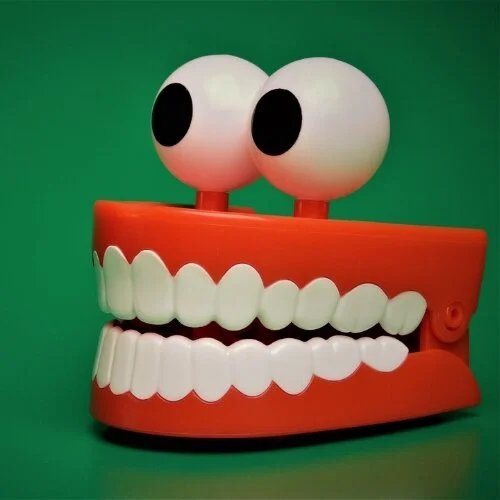Oral Care and Dentures
A person who has recently been fitted for dentures should be patient as it can take some time to get used to them. Some people adapt exceptionally well to dentures; others may have some challenges eating, speaking, or swallowing, which take a little longer. Dentures require regular, gentle care and a patient who has dentures should still see a dentist regularly.
Dentures can be prone to many of the same problems as natural teeth: staining, stuck food particles, and the buildup of plaque make regular, gentle care of dentures and the mouth an optimal habit, starting with a visit to the dentist.
The dentist will check the fit of dentures to prevent the possibility of injury to the mouth. Denture irritation to the mouth and gums can lead to sores and even infection, so this is an important step. The dentist will also clean the dentures and check for other mouth problems. The patient will be able to offer any questions or concerns. Here are some basic care tips for dentures:
Daily cleaning
A non-abrasive denture cleaner and soft-bristle brush make an excellent cleaning combination for dentures. Hard bristles should not be used as they can scratch the denture material. Food debris, residual denture adhesive, and plaque should all be removed on a daily basis. Afterward cleaning, the dentures should be rinsed thoroughly as cleaners shouldn’t be ingested.
Do not use toothpaste, bleach, peroxide, or other products on dentures. Whitening strips or peroxide toothpaste will not change the color of dentures. Toothpaste is designed for teeth and may damage dentures. Chlorine, sometimes added as an agent to oral products, will corrode and damage denture metal.
The patient can use a soft-bristled toothbrush to clean any natural teeth, taking special care to eliminate any residual denture adhesive from the mouth. The dentist may recommend a rinse.
Soaking
Soaking the dentures in an overnight solution or water will keep them moist so they will retain their shape. Following the directions on the solution will help keep the dentures clean, avoid damage, and therefore, they will last longer. Rinse the solution from the dentures after soaking, but avoid the use of hot or boiling water, since these can alter the shape of dentures.
Handling
With gentle care and safe handling practices, your dentures will last for years. If they slip or are uncomfortable, it’s essential to see a dentist. Not only because they should be comfortable, but also because patients who cannot chew properly can have eating or digestive issues which affect their overall health. If the person continues to have problems the dentist cannot help, such as achieving a proper fit or if there are other problems, the patient will then be referred to a prosthodontist--a person who has extensive training in patients with denture problems.
If you need a gentle, caring dental team, please call Jennifer Fineberg’s office at (623) 362-2550. We’ll give you the very best dental care we can!

